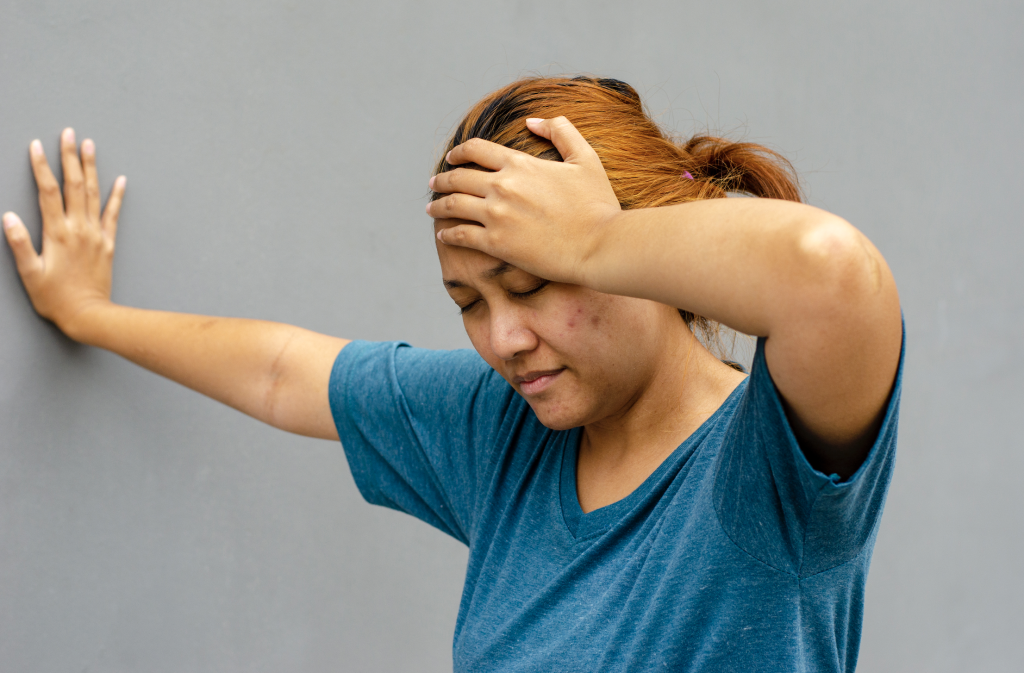Everything You Need To Know About Post-Concussion Syndrome
There’s a common misconception that concussions only last a day or two, and the injured person returns to their normal self. However, this is not always the case. Concussions can lead to several days, weeks, months or years of symptoms, known as post-concussion syndrome (PCS).
What is Post Concussion Syndrome?
PCS is a neurological disorder after a concussion or mild traumatic brain injury. This can result after having a concussion following blunt force trauma to the head during a car accident, sporting incident, slip and fall accidents and other such injuries. PCS is a very complex disorder with many symptoms that vary from person to person. Symptoms can include brain fog, memory loss, headaches and much more.
The exact cause of PCS isn’t fully known or understood, but the cause of concussions is well known. A concussion is usually the result of three injuries: direct impact injury, acceleration-deceleration injury and blast injury. A direct impact typically happens from an object hitting your skull with extreme force, acceleration-deceleration is usually experienced when coming to a sudden stop in a car accident, and blast injury can happen near an explosion-type event. Here is the protocol for concussion injuries.
It’s believed that PCS can result from several concussion symptoms like chemical imbalances, changes in brain function and physical damage to the brain.
What are The Main Post Concussion Syndrome Symptoms?
Determining the main symptoms of post-concussion syndrome can be difficult, as each sufferer will likely experience different issues. These symptoms can range from physical pain to cognitive and emotional changes such as behavioural difficulty and personality changes. Some sufferers may have a combination of all emotional and physical symptoms. Here’s what you might experience with PCS:
- Nausea
- Headaches
- Memory loss
- Depression and anxiety
- Light and noise sensitivity
- Brain fog
- Concentration challenges
- Irritability
- Mood swings
- Blurred vision
- Migraines
- Fatigue
- Balancing trouble
Post Concussion Syndrome Treatments
There are currently no guaranteed successful treatments for PCS, and most treatments revolve around managing the symptoms instead of curing the condition itself. Patients may be able to secure long-term pain relief for headaches and migraines and some talking therapies or selective serotonin uptake inhibitors (SSRIs) to manage emotional and personality changes like depression, anxiety and even chronic fatigue. Physical therapy may be beneficial if you struggle with balance or neck pain due to mild traumatic brain injuries.
These therapies and medical treatments can be expensive. If you experience PCS due to someone else’s negligence or an accident that wasn’t your fault, you should consult our brain injury lawyers from Virk Lawyers. We can help brain injury victims secure compensation that can help to pay for hospital treatment, medications and long-lasting rehabilitation.
Legal Implications of Post-Concussion Syndrome
Like any other injury sustained in an accident that wasn’t your fault, you should consult personal injury lawyers to help you secure compensation. A brain injury lawyer in Hamilton can help you recover funds to compensate for the pain and suffering you experienced during the initial stages of your brain injury and the lasting effects of PCS.
A Hamilton personal injury lawyer can also help you recover funds for medical expenses and lost wages if you cannot work due to your symptoms. If you think you might be entitled to compensation, you should consult with a traumatic brain injury lawyer as soon as possible. Not only can they provide you with legal representation, but they can also help you understand your rights and estimate how much you may be entitled to as a brain injury victim.
Life With Post Concussion Syndrome
Living with PCS can be challenging, but you can adopt a range of lifestyle changes that can make your physical and emotional symptoms more manageable. Here are some things you can do now to make a change:
Proper rest: Rest is critical for both PCS and the early stages of a concussion. Your brain needs time to relax and heal itself, so you should always avoid activities that may worsen your symptoms if you’ve suffered a brain injury due to a sudden impact.
Mindfulness: Mindfulness exercises are a good way to manage the mental impact of a mild brain injury and PCS. This can be beneficial for managing stress levels, especially if you’re experiencing financial loss and a taxing legal process related to your injury.
Exercise: If you experience chronic fatigue or emotional struggles due to PCS, then regular exercise can be beneficial. This releases mood-lifting endorphins, giving you more energy and balancing your mood.
Nutrition: Eating nutritious food and drinking lots of water can give your body the strength it needs to heal and mitigate headaches.
Support: PCS can have a devastating impact on your life. From social isolation to financial impacts, having a support system to manage this condition can help you emotionally cope with your symptoms.
Struggling with PCS and Need a Brain Injury Lawyer in Hamilton? Contact Virk Lawyers Today
If you’re suffering from the long-term effects of a traumatic brain injury, you should seek the help of a brain injury lawyer in Hamilton from Virk Lawyers. Our experienced team of lawyers from our Hamilton law firm understands the impact PCS can have on your life. We want to help secure the compensation you deserve to manage expensive medical care related to your condition. Book a free online consultation to discuss how we can help you seek compensation for your post-concussion syndrome.

